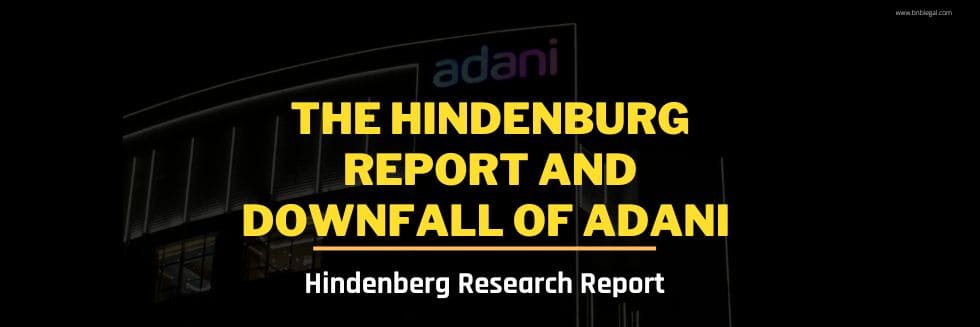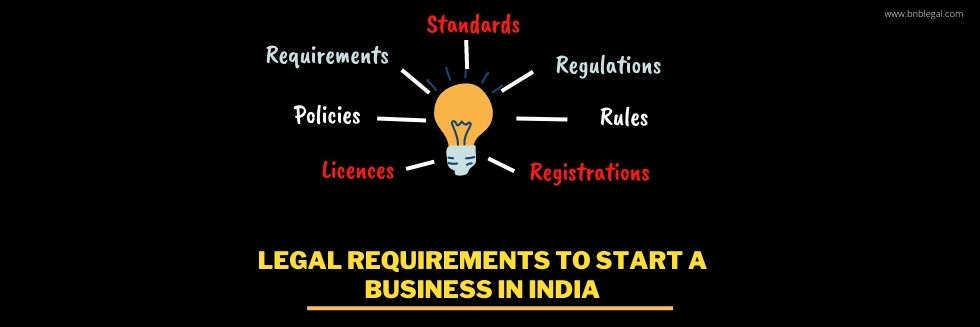Recently, Wipro has terminated the services of approximately 300 employees for their involvement in ‘moonlighting’. This is in line with the recent trend of IT services firms strengthening their position against staff engaging in secondary employment beyond regular working hours. Commenting on the backlash received from the decision, WIPRO chairman Rishal Premji said, “WIPRO does not condone employees working directly with competitors while remaining on the company’s payroll.”[1]
Moonlighting is a colloquial term referring to when an individual works two full-time roles, typically carried out after the established working hours of one’s primary employment. Individuals may opt for moonlighting for various reasons, including the acquisition of additional income, the pursuit of career advancement, exploration of entrepreneurial activities, attainment of job satisfaction, skill diversification, access to networking opportunities, debt repayment, or the achievement of specific financial goals.
The concerns raised by Wipro regarding ‘moonlighting’ are not unique, with IBM also having issued warnings against this burgeoning trend, characterizing it as a “complete violation of integrity in its deepest form.” However, not all companies seem to oppose this novel trend, like the food delivery service Swiggy which introduced an industry-first “Moonlighting policy” in August 2022. This policy permits employees to engage in supplementary projects outside of their regular working hours, albeit subject to specific constraints. These projects are intelligently categorized into two groups, A and B, with List A encompassing high-sensitive endeavours that leverage professional expertise, while List B includes projects of a non-professional nature aligned with personal interests and hobbies[2].
These events have brought to the forefront again the long-standing debate on balancing employer interests with the rights and welfare of employees in the present day. As major IT firms, including TCS, Wipro, and Infosys, have made announcements indicating delays or reductions in variable payouts to employees for the first quarter of FY 2023 due to diminished margins[3], moonlighting as a general practice among employees is only expected to increase further.
A recent Kotak Institutional Equities survey of 400 people employed in the IT/ITES sector revealed that over 65% of the participants knew of someone looking for work outside of their primary position. This might be because the prevalent work-from-home model adopted during the COVID pandemic encouraged many employees to seek supplementary sources of income through side jobs, thereby contributing to the normalisation of the practice of moonlighting among Indian professionals. This, in turn, has raised regulatory concerns for companies as they grapple with the implications of this evolving trend.
What is moonlighting?
Moonlighting may be defined as, “the act of working at an extra job, especially without telling your main employer.”[4] Sometimes, moonlighting is also referred to as over-employment. Herein, it is pertinent to note that while the terms moonlighting and dual employment are frequently used interchangeably, they are not always the same. A formal employer-employee relationship—complete with legal duties such as minimum salary, provident fund, gratuity, etc. is a hallmark of dual employment, however, moonlighting might also include a second job altogether, or even just side projects or freelance work, which the major employer may or may not be aware of. For instance, common examples of moonlighting include doctors providing services in a private clinic after hospital hours, professors teaching private tuition, and professionals sometimes taking on part-time freelance work to supplement their income. Moonlighting may however raise concerns regarding the protection of an employer’s interests, particularly if the employee works with a rival company or his productivity at work is affected by moonlighting. Additionally, employers have legitimate concerns about grey areas related to confidentiality, non-compete agreements, intellectual property ownership and assignment, and contributions to employment social benefit schemes like those covered by the Employees’ State Insurance Act of 1948 or the Employees’ Provident Funds and Miscellaneous Provisions Act of 1952 are hampered by moonlighting.
As no specific laws exist, employment agreements in India usually include a “moonlighting clause” restricting the employee from acquiring additional employment. Such contracts usually call for non-compete and single employment. In case of lack of such contracts, or relaxation in the same, moonlighting could not be considered as cheating.
Is moonlighting illegal in India?
At the outset, it must be mentioned that moonlighting is not defined nor prohibited in any particular Indian legislation. However, some practices with characteristics of moonlighting are regulated to a limited extent by various specific legislations.
It is against the law for any adult worker to work in a factory on a day when they have already worked in another workplace, as stated in Section 60 of the Factories Act, 1948[5]. Similarly, Schedule I-B of the Industrial Employment (Standing Order) Rules, 1946[6] places a strong emphasis on exclusive service, mandating that employees not work against the interests of the industrial establishment in which they are employed and not accept any other jobs that might jeopardise the interests of their employer. In the context of the draft Model Standing Orders for Service Sector, 2020, as outlined in Clause 22[7], a worker is prohibited from working against the interests of their industrial establishment or taking up additional employment that could adversely affect their employer’s interests. It should be mentioned, though, that these orders have not yet been notified. Furthermore, as per Section 9 of the Delhi Shops and Establishments Act, 1954[8], an individual is not permitted to engage in the operations of one or more establishments, a factory, or both for longer than the time frame that they are lawfully engaged under this Act.
Judicial Precedents:
The High Court of Punjab and Haryana supported dismissing an employee for engaging in moonlighting in the case of Gulbahar v. Presiding Officer[9]. On a similar tone, the Bombay High Court held in the Manubhai Gorbhandas v. Arvind Mills Company[10] case that dismissing a factory worker for double employment under Section 60 of the Factories Act, 1948 was reasonable rather than harsh because the worker was depriving his employer of the best of his services by working two jobs, as it is not humanly possible to work at the same quality and efficiency continuously for long periods. The Kerala High Court in the case of P.A. Kunjumuhammed v Sub Inspector of Police and Others[11] also restricted moonlighting. Additionally, in the case of M. Neelakandan v. The Presiding Officer, Labour Court (II Additional District Judge)[12], the courts upheld a circumstance in which a company’s approved standing orders explicitly prohibit simultaneous employment and viewed it as misconduct. Courts have recognised moonlighting in certain situations as wrongdoing that would render any relief null and void if proven beyond a reasonable doubt. In the case of Manager, Pyarchand Kesarimal Ponwal Bidi Factory vs. Omkar Laxman Thange and Others,[13] the Supreme Court made the following observation: “The general rule regarding the relationship between an employer and an employee is that an existing employment contract with one employer prevents simultaneous employment with another, unless the contract stipulates otherwise or the employer gives consent.” About the aforementioned Supreme Court decision, the Madras High Court, in the case of Government of Tamil Nadu vs. Tamil Nadu Racecourse General Employees Union,[14] ruled that “there may not be any prohibition against having dual employers if the employment contract specifies otherwise or if the employer consents.”
Analysis of International Jurisdictions:
The United States of America:
In the US, moonlighting is a common practice that accounts for a sizeable share of the labour market, particularly for lower-class workers. Most federal employees are not subject to a moonlighting clause in the United States, but there may be differing legislations on the state level.
For example, the California Labor Code section 96 is largely employed to penalise workers who moonlight in their spare time, with some exceptions such as those that allow for prohibitions on illegal activities, using company resources or time for moonlighting, not getting enough sleep to perform poorly on the job, disclosing trade secrets, or having a conflict of interest.[15]In a similar vein, the District of Columbia clearly forbids companies from preventing present workers from concurrently working for another employer.[16] With very few exceptions, the state of Washington expressly forbids employers from preventing a worker making less than twice the applicable state minimum hourly wage from working two jobs, working as an independent contractor, being self-employed, or supplementing their income by working for another company.[17]
Europe:
2019 saw the adoption of the European Directive on Transparent and Predictable Working Conditions (the “Directive”).[18] The Directive includes new guidelines for working for firms other than your own as well as a wide range of measures aimed at giving employees more stable and secure working conditions. For instance, it mandates that EU member states make sure that an employer can no longer forbid a worker from working for themselves or for another business outside the scheduled working hours. Moonlighting in the UK must be interpreted in light of the “Working Time Regulations,” which provide a 48-hour workweek cap. Further, the law prohibits exclusive zero-hour contracts that restrict workers from working elsewhere.[19]
Conclusion:
Moonlighting has become increasingly prevalent in recent days, driven in part by the work-from-home model adopted during the COVID-19 pandemic. This has led to the normalization of the practice among Indian professionals. In the absence of concrete legislation regarding the same, companies are left grappling with its implications. Judicial precedents in India have generally supported employers’ actions against moonlighting, emphasizing the need for employees to seek authorization for secondary employment.
Internationally, there are varied approaches to moonlighting. In the United States, it is a common practice with some state-specific regulations, while Europe has seen the adoption of directives aimed at providing employees with more stable working conditions, while the UK places restrictions on working hours and zero-hour contracts.
As the trend of moonlighting continues to grow, companies and policymakers must navigate the evolving landscape to strike a balance that respects both employer interests and the rights of employees. It remains to be seen whether legislative measures will be introduced to provide clearer guidelines and protections in the context of moonlighting in India.
[1] Divya Bhati, Wipro fired 300 people for moonlighting, INDIA TODAY (2022)
[2] Priyanka Praveen, Swiggy’s new policy enables employees to pick up gigs outside the company, SWIGGY DIARIES (2022)
[3] Aakanksha Cahturvedi, Why majors Infosys, Wipro, and TCS are scaling back on variable payout, BUISNESS TODAY (2022)
[4] Moonlighting, Cambridge Dictionary
[5] The Factories Act, 1948, § 60, Acts of Parliament (India) < https://labour.gov.in/sites/default/files/factories_act_1948.pdf >
[6] The Industrial Employment (Standing Orders) Act, 1946, Schedule I-B, Acts of Parliament (India) < https://labour.gov.in/sites/default/files/Industrial-Employment-Standing-Orders-Act-1946.pdf >
[7] Draft Model Standing Orders for Service Sector, 2020, Cl. 22 < https://labour.gov.in/sites/default/files/224080_compressed.pdf >
[8] The Delhi Shops and Establishments Act, 1954, § 9, (India) < https://www.indiacode.nic.in/bitstream/123456789/13587/1/delhishopsnestablishmentsact.pdf >
[9] 2016 SCC OnLine P&H 2069
[10] (1956) IILLJ 554 Bom
[11] (2019) 3 KLT 826
[12] (2012) 3 CTC 170
[13] AIR 1970 SC 823
[14] 1993 ILLJ 977 Mad
[15] Also, California Business and Professions Code Section 16600 (“Section 16600”)
[16] Ban on Non-Compete Agreements Amendment Act of 2020, D.C. Law 23-209
[17] The Washington State non-compete law, 2020 < https://app.leg.wa.gov/RCW/default.aspx?cite=49.62 >
[18] The European Directive on Transparent and Predictable Working Conditions, < https://eur-lex.europa.eu/legal-content/EN/TXT/?uri=CELEX:32019L1152 >
[19] The Working Time regulations (1998), No. 1833, The United Kingdom < https://www.legislation.gov.uk/uksi/1998/1833/made >
This article is written and submitted by Garima Thakur during her course of internship at B&B Associates LLP. Garima is a 2nd-year B.A.LL.B student at RGNUL, Patiala.









